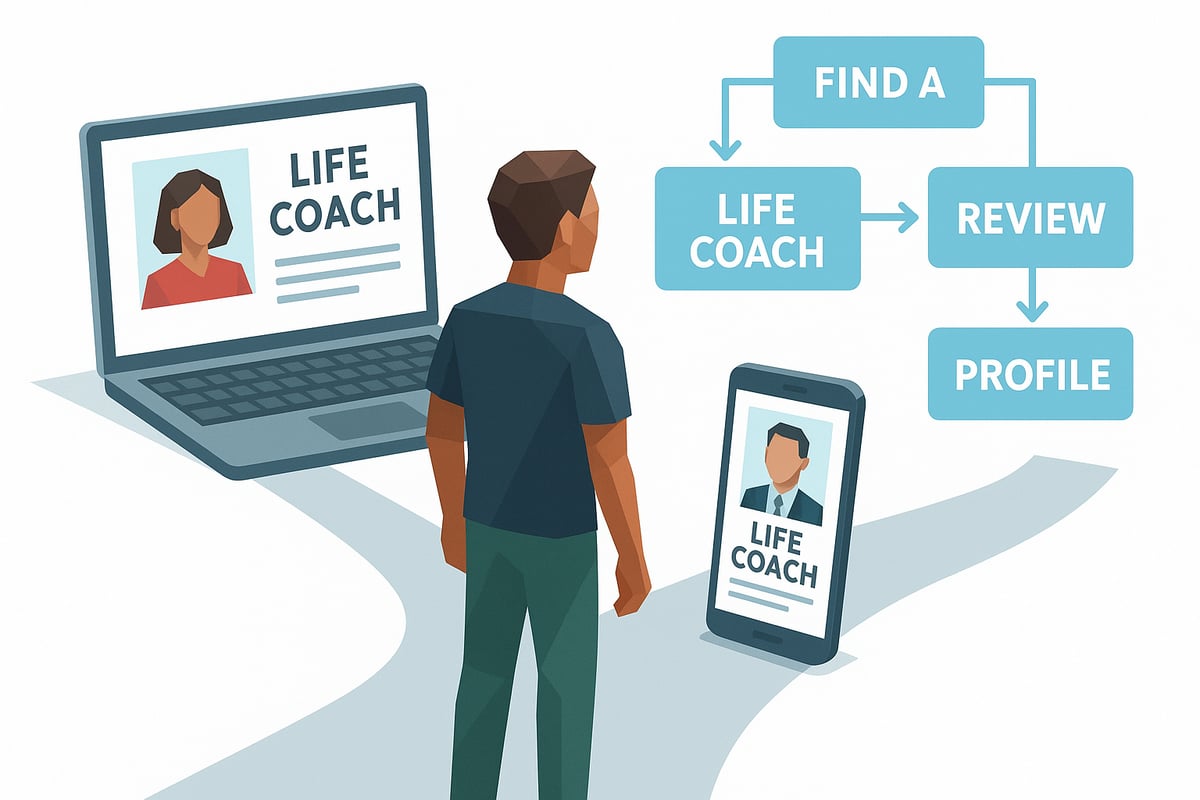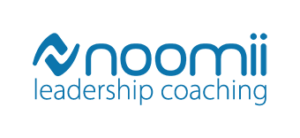Guide to Find a Life Coach: Expert Tips for 2025
The demand for life coaching is soaring in 2025 as more people invest in personal and professional growth. The right coach can unlock your potential, boost your confidence, and propel you toward meaningful goals.
Yet, with countless options available, it’s easy to feel overwhelmed by choices, uncertain about credentials, or confused about which specialty fits your needs. That’s why this guide is here—to help you find a life coach who aligns with your aspirations and delivers real results.
You’ll discover the different types of life coaches, key qualifications to look for, a step-by-step selection process, common red flags, and expert tips for success.
Understanding Life Coaching in 2025
What is a Life Coach?
A life coach is a trained professional who helps clients unlock their potential, clarify goals, and design actionable strategies for both personal and professional development. Unlike therapists, who address past trauma or mental health concerns, life coaches focus on present and future objectives, offering accountability and support to drive progress.
Mentors may share advice based on their experiences, but life coaches guide clients to discover their own solutions. The key benefits when you find a life coach include increased clarity, stronger accountability, mindset shifts, and tangible action plans.
Life coaching is used in scenarios like career changes, relationship challenges, and executive leadership. The industry has surged in recent years, with life coaching industry growth statistics 2025 showing significant expansion as coaching becomes mainstream for transformation.
Evolving Trends in Life Coaching
In 2025, the way people find a life coach is evolving rapidly. Virtual and online coaching platforms now make expert guidance accessible worldwide, breaking down geographic barriers. Artificial intelligence tools are personalizing coaching plans, assessing client needs, and tracking progress with unprecedented precision.
Specialization is a defining trend. Coaches focus on niches such as wellness, executive leadership, relationships, finance, or life transitions. Demand for these specialists continues to climb as clients seek tailored solutions. Technology, including apps and digital trackers, enhances accountability and keeps clients engaged.
A popular tool in this space is the Wheel of Life, helping individuals assess and visualize different life areas. This holistic approach, championed by leaders like Tony Robbins, is now a staple in modern coaching.
Who Can Benefit from Life Coaching?
Almost anyone can benefit when they find a life coach. Individuals who desire clarity, motivation, or support for personal or career goals often achieve breakthroughs with coaching. Executives and professionals leverage coaching to build leadership skills or boost performance.
People facing major transitions—such as divorce, relocation, or job changes—also find valuable guidance from coaches. According to International Coaching Federation surveys, clients report higher satisfaction and greater success in achieving goals compared to those who go it alone.
The truth is, coaching is not just for those in crisis. It is an empowering tool for anyone committed to growth and ready to invest in their future.
Types of Life Coaches and Specialties
When you find a life coach, consider the wide variety of specialties available. Top categories include relationship, career, business, health and wellness, financial, recovery, transitional, and personal development coaching.
Each specialty addresses unique needs. For example, a career coach helps with job advancement, while a business coach focuses on entrepreneurial growth. Choosing the right specialist ensures your coach has the expertise to guide you effectively.
Think about your main objectives before selecting a coach. Matching their specialty to your goals leads to a more rewarding and impactful coaching experience.

Essential Qualities and Credentials to Look For
Choosing to find a life coach is a significant step, so knowing what to look for separates a powerful partnership from wasted time. The right coach will help you unlock your potential, but only if they possess the essential skills, credentials, and experience to guide your journey.

Key Attributes of an Effective Life Coach
The decision to find a life coach should start with evaluating their core attributes. A great life coach excels at building rapport through deep listening, empathy, and honest feedback. They create a safe, nonjudgmental space where you can reflect and grow.
Accountability is another hallmark. Effective coaches ensure you stay on track with clear, actionable goals. They help you visualize a compelling future and use strategic thinking to break big dreams into achievable steps.
World-class coaches, like those inspired by Tony Robbins, balance encouragement with challenge. They push you beyond your comfort zone while supporting your progress. When you find a life coach with these qualities, you set the stage for lasting transformation.
Recognized Certifications and Training
When you find a life coach, verified credentials matter. Certification signals a commitment to ethical standards and professional development. The most respected accreditations in 2025 include:
| Accreditation | Issuer | Focus Area |
|---|---|---|
| ICF (ACC, PCC, MCC) | International Coaching Federation | Global, broad coaching standards |
| BCC | Center for Credentialing & Education | Board Certified Coach, multidisciplinary |
| CPCC | Co-Active Training Institute | Experiential, co-active coaching |
| EMCC | European Mentoring and Coaching Council | European standards, mentoring |
Coaches with recognized certification, such as those listed by Paperbell, inspire greater client trust and deliver stronger results. Always verify a coach’s training and ask about their ongoing education before you find a life coach.
Experience and Track Record
To find a life coach who delivers results, look for a proven track record. Experienced coaches showcase client testimonials, case studies, and measurable outcomes. Their websites and profiles highlight real transformations—career changes, leadership growth, or improved relationships.
Review the coach’s specialty and success stories to ensure they align with your goals. Longevity in the field and ongoing professional development are strong quality indicators. When you find a life coach with a robust track record, you minimize risk and maximize your investment in personal growth.
Coaching Methodologies and Systems
A structured, evidence-based approach sets top coaches apart. When you find a life coach, ask about their preferred methodologies, such as:
- GROW (Goal, Reality, Options, Will)
- Wheel of Life (holistic self-assessment)
- Results Coaching (action-oriented frameworks)
Alignment between your learning style and the coach’s system is crucial. Some clients thrive with structured planning, while others need flexibility. Comparing different coaching systems helps you find a life coach whose methods fit your needs. For more guidance, explore Finding the right coach tips for best practices in evaluating coaching styles.
Finally, protect your coaching investment by partnering with professionals who value transparency and ongoing growth.
Step-by-Step Guide to Finding Your Ideal Life Coach
Finding your ideal life coach in 2025 is a transformative journey that begins with clarity and ends with empowered action. With the increasing demand for coaching, it’s crucial to follow a structured process to ensure you select the best fit for your unique goals. This step-by-step guide will help you confidently navigate the process to find a life coach who can truly accelerate your growth.

Step 1: Clarify Your Goals and Needs
Start by reflecting on what you want to achieve. Are you seeking personal development, career advancement, or relationship improvement? Self-assessment tools like the Wheel of Life can help pinpoint areas where you need support.
Write down your top priorities. For example, if you’re transitioning careers, you may want a coach with expertise in change management. If personal growth is your focus, look for someone specializing in mindset and motivation. The clearer your vision, the easier it is to find a life coach who matches your needs.
Step 2: Research and Shortlist Potential Coaches
Leverage online directories, social media, and professional associations to build your shortlist. Use filters for specialization, location, and coaching style. Platforms such as CoachCompare, Paperbell, or LinkedIn make the process efficient.
Look for coaches whose profiles resonate with your goals. Check their areas of expertise, coaching philosophy, and client reviews. According to Paperbell, 70% of clients find a life coach through online platforms, making digital research an essential step.
Step 3: Evaluate Credentials and Background
Once you have a shortlist, verify each coach’s credentials. Look for certifications from organizations like the International Coaching Federation (ICF) or the Center for Credentialing & Education (CCE). These credentials signal rigorous training and adherence to ethical standards.
Review their professional bios and ongoing education history. Be cautious of coaches who lack transparency or make unverifiable claims. Trust but verify—always ask for proof of qualifications before you commit to find a life coach.
Step 4: Assess Coaching Style and Compatibility
Chemistry is crucial for coaching success. Schedule a discovery or trial session to gauge compatibility. Pay attention to how the coach communicates, their approach to accountability, and whether their style aligns with your values.
Prepare questions: How do you provide feedback? What is your session structure? How do you track progress? Clients who feel a strong rapport with their coach consistently achieve better outcomes, so this step is essential when you want to find a life coach who fits.
Step 5: Review Testimonials and Case Studies
Dive into client testimonials and case studies to assess real-world results. Focus on reviews that detail specific transformations and satisfaction levels. Look for depth and specificity—generic praise is less valuable than stories of measurable progress.
Check coach websites, directories, and third-party platforms for unbiased feedback. Robust testimonials are a strong indicator that you will find a life coach capable of delivering on their promises.
Step 6: Understand Pricing, Packages, and Commitment
Coaching fees vary widely. Some coaches offer hourly rates, while others provide packages or retainer agreements. Clarify the number of sessions, duration, and cancellation policies upfront.
Compare costs across different platforms and specialties. For example, executive coaches may charge more due to their expertise. Understanding the investment required to find a life coach will help you set realistic expectations and avoid surprises.
| Pricing Model | Typical Range | Best For |
|---|---|---|
| Hourly | $75–$300 | Short-term goals |
| Packages | $500–$3000 | Structured programs |
| Retainer | $1000+/mo | Ongoing executive needs |
Step 7: Make Your Decision and Set Expectations
After careful evaluation, choose the coach who aligns with your goals, style, and budget. Establish clear objectives, boundaries, and communication norms from the outset. Draft a coaching agreement or contract to formalize your partnership.
Commitment is key to success when you find a life coach. Mutual accountability will drive results and ensure your investment pays off.
Red Flags and Mistakes to Avoid When Choosing a Life Coach
Selecting the right expert when you want to find a life coach can feel overwhelming. With so many options, it’s easy to overlook warning signs. Protect yourself by learning the most common mistakes people make and the red flags that signal a poor fit.

Common Pitfalls in Selecting a Coach
When you try to find a life coach, avoid falling for glossy marketing or “guaranteed” outcomes. Many people skip researching a coach’s credentials, focusing only on price or how popular someone seems online. This often results in disappointment and wasted resources.
Key mistakes to watch for:
- Trusting unverified claims or promises that sound too good to be true
- Ignoring the importance of formal qualifications and real experience
- Choosing a coach solely based on cost or flashy social media presence
Clients who do not take the time to check backgrounds often regret their decision. Industry trends reveal that informed choices lead to higher satisfaction and better results.
Warning Signs of Inexperienced or Unethical Coaches
Spotting red flags early is critical when you want to find a life coach who truly supports your growth. Beware of high-pressure sales tactics, vague answers about their process, or a lack of openness around credentials.
Warning signs include:
- Coaches who avoid clear explanations of their methods
- No structured approach or consistent session outline
- Reluctance to provide references or testimonials
If you notice these behaviors, proceed with caution. Competitor testimonials sometimes highlight stories where clients were misled by such tactics. Trust your instincts—transparency and professionalism matter.
Avoiding Mismatched Coaching Specialties
To successfully find a life coach, make sure their expertise aligns with your unique goals. Hiring the wrong type of coach can waste time and stall progress. For example, a business coach may not be equipped to help you navigate personal relationship challenges.
When searching:
- Clarify your primary objectives before reaching out
- Ask coaches about their specific training and experience in your area of need
- Look for case studies or examples relevant to your goals
Niche alignment ensures your coach understands your challenges and can offer targeted strategies. Choosing the right specialty is vital for meaningful growth.
Protecting Your Investment
Taking steps to protect yourself is essential when you find a life coach. Always insist on a written contract that outlines terms, session structure, and privacy protections. Understand your rights regarding refunds, cancellations, and how to address concerns.
Research shows that most dissatisfied clients cite unclear expectations or poor communication. To avoid this, set clear boundaries and review all agreements carefully. If things are not working out, know how to exit gracefully.
Expert Tips for Maximizing Your Coaching Experience
Getting the most out of your coaching journey takes more than just signing up. To truly benefit when you find a life coach, you need to approach each session with intention and commitment. Here’s how to maximize your investment and accelerate your growth.
Prepare for Your First Session
Preparation sets the stage for transformation. Before you find a life coach, gather your thoughts about what you want to achieve. Write down your biggest goals and obstacles so you can share them clearly.
Complete any pre-session assessments or questionnaires your coach provides. These tools help both you and your coach identify areas for growth. Bring relevant documents, such as past performance reviews or self-assessment results, to your first meeting.
Reflect on your motivations for seeking coaching. If you know exactly why you want to find a life coach, you’ll enter your first session ready to make real progress.
Build a Strong Coach-Client Relationship
A thriving relationship is the backbone of success when you find a life coach. Build trust by sharing openly and honestly from day one. Set clear expectations for communication, confidentiality, and feedback.
Regular check-ins and progress reviews help maintain momentum. Be receptive to your coach’s observations and willing to step outside your comfort zone. Strong engagement drives better results, so show up prepared and present for every session.
Remember, the best outcomes happen when you and your coach work as true partners. When you find a life coach who values collaboration, your growth accelerates.
Embrace Accountability and Action
Transformation comes from action. After you find a life coach, expect to leave each session with specific action steps. Track your progress using digital tools like journaling apps or habit trackers.
Consider these accountability strategies:
- Set weekly or monthly milestones.
- Use progress dashboards to visualize achievements.
- Partner with an accountability buddy if recommended.
Your coach will help you stay on track, but your commitment is vital. When you find a life coach, leverage every tool available to turn insights into results.
Evaluate Progress and Adjust as Needed
Continuous evaluation keeps your coaching journey productive. Schedule regular reviews to assess your progress on the goals you set when you first find a life coach. Honest reflection reveals what’s working and where you need to pivot.
Be open to tweaking your objectives or even changing coaches if your needs evolve. Use mid-program evaluations or feedback loops to stay aligned with your vision.
Clients who regularly assess and adjust their approach report higher satisfaction and greater achievement. Flexibility is a key advantage when you find a life coach committed to your success.
Leverage Additional Resources and Community Support
Your growth does not stop at the end of each session. When you find a life coach, seek out extra resources like books, podcasts, or webinars to deepen your learning. Join online coaching communities or participate in workshops to expand your network and support system.
Follow inspiring coaches on social media or explore platforms like Business coaching category insights for ongoing education. For those wanting accountability beyond coaching sessions, platforms such as Accountability Now offer tools and communities designed to keep you moving forward.
The most successful clients use every available resource. Keep exploring, connecting, and learning to maximize your coaching experience.




Leave a Reply
Want to join the discussion?Feel free to contribute!